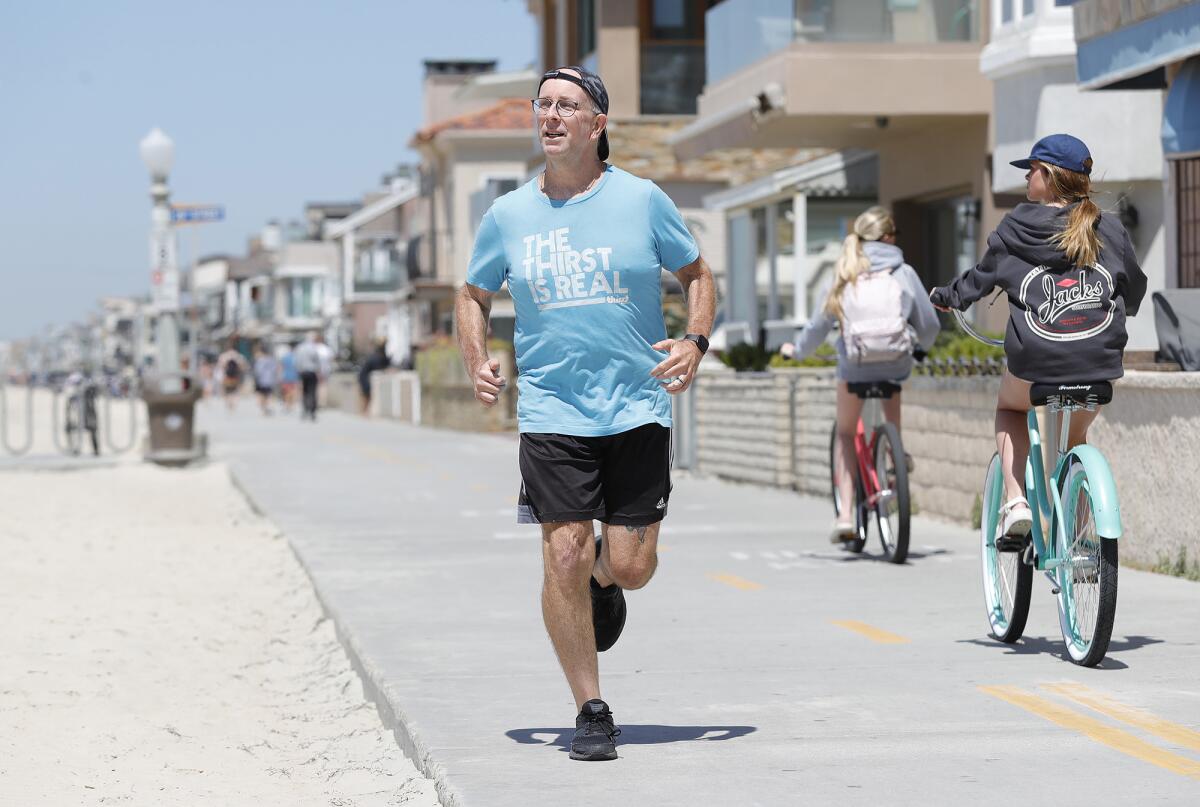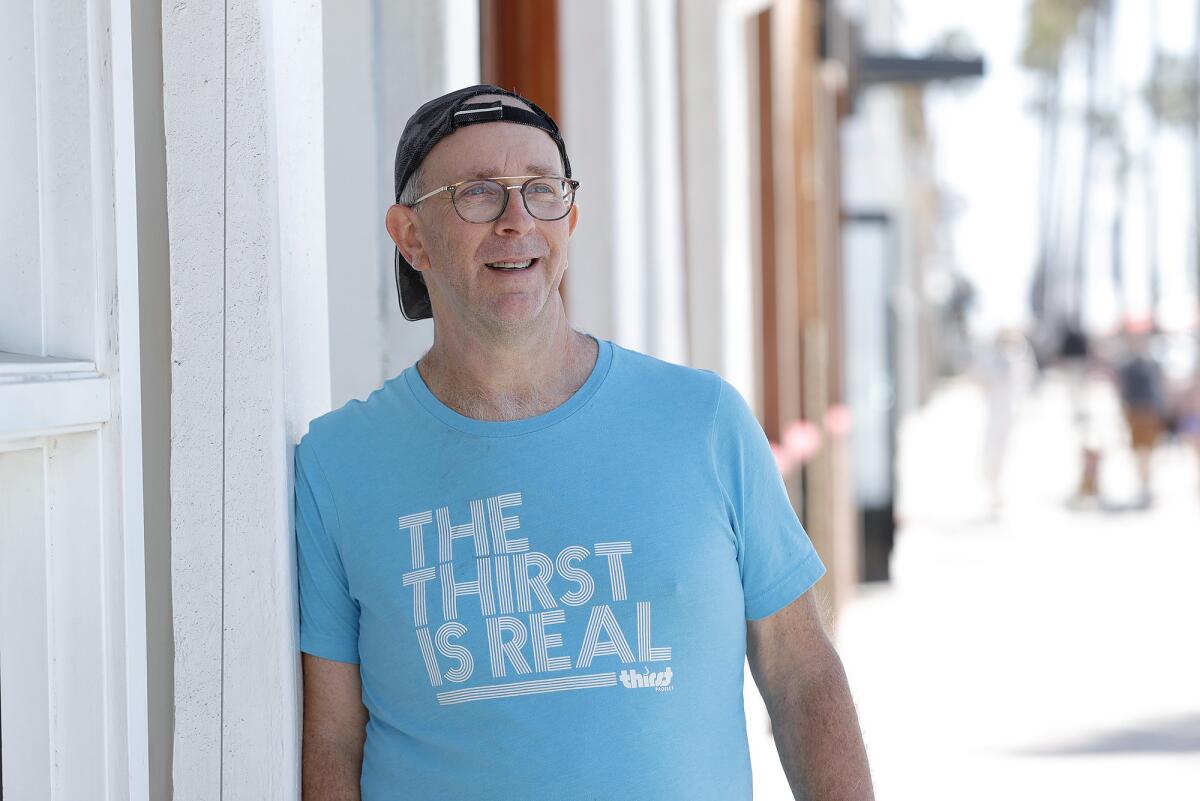Damon Brown runs marathon on Newport Beach, raises funds to fight global water crisis

- Share via
In the early afternoon on Friday, Damon Brown completed his mission — for the sixth time.
Brown finished his annual marathon to raise money for Thirst Project, a nonprofit organization which has made its goal to solve the global water crisis.
A 56-year-old transplant from Indiana, Brown moved to Southern California last year to be closer to his grandchildren. He began his run along the Balboa Peninsula in Newport Beach at 7 a.m. Friday, hoping to draw more supporters to his cause.
Draped along the back of his shirt was a message asking for the public’s help. Brown has a goal of raising $15,000 to help build a clean water well in the South African nation of Eswatini.
“People, when they see that you’re willing to sacrifice and you’re willing to put your body where your mouth is, then people are a lot more moved to take you seriously,” Brown said.
The Balboa Peninsula is not long enough to run a marathon — not even close — but that gave him more chances to be spotted during his run for charity. Brown said that as of Friday evening he had raised close to $10,000 through his current effort.

“It’s the Forrest Gump thing, only way shorter,” Brown chuckled in advance of the run. “Instead of Maine to California, it’ll be Handel’s Ice Cream to the guy’s house where the sidewalk ends.”
How does a grandpa get the motivation to run, and walk, a marathon? For Brown, a mentee became the mentor. Brown works as a show choir choreographer, and his former student, Thirst Project founder Seth Maxwell, provided the inspiration.
When Maxwell moved to California for school, Brown would schedule dinners with him whenever he traveled to the state. He recalled the night Maxwell told him he had been made aware of the global water crisis and felt compelled to do something about it.
“I thought it was going to be him and some friends were going to collect money around their neighborhood and send it to a water charity, and that would be kind of it,” Brown said. “They might do that a couple times. I didn’t take him overly seriously other than thinking it was a very kind thing to do and encouraging him. … Two years later, he’s building the first well in Swaziland. I’ve taught over 75,000 students in my life. [Maxwell is] easily the most visionary, hard-charging, compassionate human being I’ve ever worked with.”
Brown became a contributor, and in 2016, he decided to find out where his dollars were going. He has made two trips to Eswatini, and those visits strengthened his resolve to get involved. He said he witnessed both “beautiful and horrific things” — sometimes within five minutes of each other.
Sights such as seeing human beings of all ages walk miles to retrieve water from a contaminated source, then make the return trek while carrying it — often barefoot through treacherous terrain — left an imprint on his memory. So, too, did the disease that had stricken the communities he visited.
Brown, now a part-time outreach coordinator for Thirst Project, said the group has built more than 4,000 wells in 13 countries, including in Eswatini, Kenya, Uganda and El Salvador.
Whether it is Brown running in the community or team members speaking at schools across the nation, Thirst Project has taken a grassroots approach in its call to action.
“There’s nothing that can replace telling that story face to face, even with all the advances of social media in the digital age,” Luke Romick, director of marketing and partnerships for Thirst Project, said. “It really started as a conversation that has grown and continues as a conversation.”
Romick added students already have the tools they need to make a difference, saying even having a discussion about the issue can help.
To donate, visit my.thirstproject.org/fundraiser/3472014.
All the latest on Orange County from Orange County.
Get our free TimesOC newsletter.
You may occasionally receive promotional content from the Daily Pilot.




